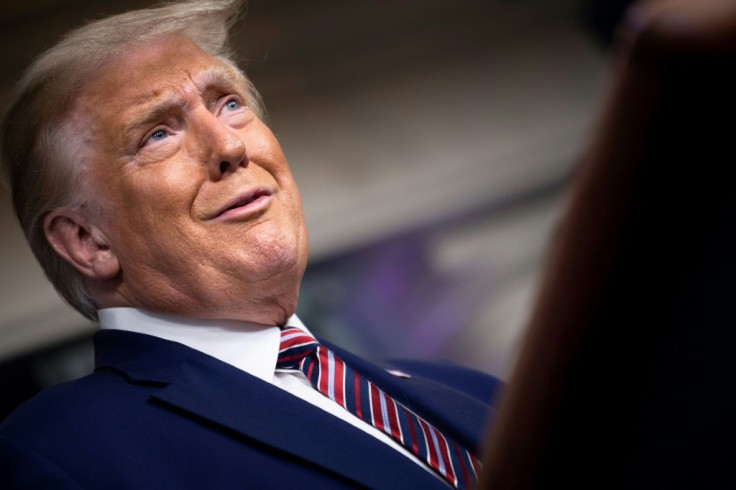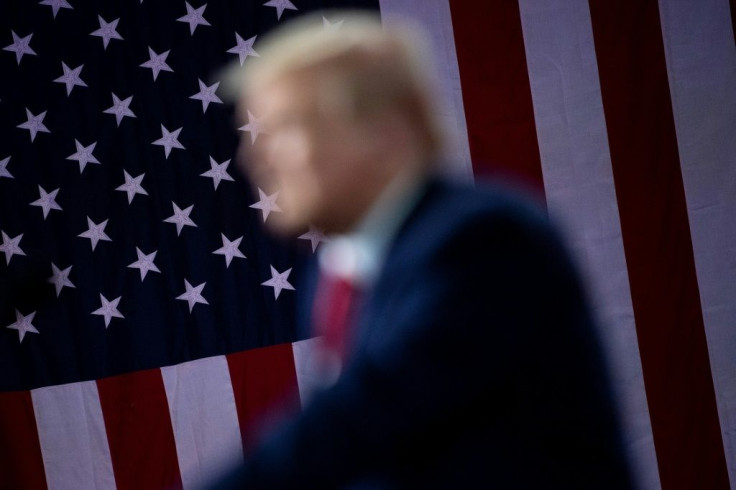Bust, Boom, And Back Again: How ‘The Apprentice’ Saved Donald Trump From Financial Ruin
KEY POINTS
- In the early 2000s, Donald Trump's revenue streams were drying up. Faced with mounting losses, he turned to "The Apprentice" to restart his brand
- His renewed celebrity allowed him to partner with a slew of multilevel marketing schemes and risky real estate developments, raking in money at the expense of his consumers
- The revenue couldn't last, however, and as debts from bad investments mounted Trump looked toward a long-shot presidential bid to revitalize his business
When Donald Trump first swaggered onto the set of "The Apprentice" in 2004, he was carrying with him millions of dollars of debt and hundreds of millions in accrued losses.
A report by the New York Times alleges that after Trump’s disastrous casinos failed, he found himself struggling to find income and fading from the public consciousness.
By 2002, Donald Trump was twice divorced and had reported losses each year for over a decade according to The Times’ documents. His deficits had mounted to a total of $352.8 million, and revenue from books and endorsements was drying up.
Then he got a lifeline from “The Apprentice.”
The television show used what was left of Trump’s public clout to bill him once more as a financial genius, a bet that paid of in all senses of the word. The show renewed the public’s belief in the Trump mythos, and the Trump brand’s reemergence allowed him to cash in with lucrative product endorsements.
Bill Pruit, a producer for the show, told the New Yorker: "We walked through the offices and saw chipped furniture. We saw a crumbling empire at every turn. Our job was to make it seem otherwise."
In the years immediately after the show’s debut, Trump went from earning $500,000 for appearing in a McDonald’s “Big N’ Tasty Burger” ad to raking in $5.2 million over 11 different appearances with various products from detergent to Domino's pizza. A partnership with Serta mattresses netted $15 million, a clothing collaboration another $15 million.

Trump, however, didn’t confine himself to simple product endorsements. After “The Apprentice” finished its first year, Trump received $300,000 to speak at a Dayton, Ohio, event purportedly distributing the secret to instant wealth via real estate. The event has since been sued as an alleged Ponzi scheme.
In another instance, Learning Annex paid him $7.3 million to participate in an event titled “Real Estate Wealth Expo: One Weekend Can Make You A Millionaire.”
As the years went on, Trump took even less scrupulous marketing deals, according to The Times.
He partnered with ACN, a multi-level marketing company that French courts found only provided 1% of recruits with a satisfactory income. The state of Montana found on average participants lost 93% of the funds they put into the scheme. ACN, for its part, was happy to inform potential participants how very legal their business was on their page entitled “The Difference Between ACN And A Pyramid Scheme.” ACN paid Trump $8.8 million over a decade for his help promoting their products.

The list goes on, with Trump becoming even more central to the scams. Another multilevel marketing scheme entirely rebranded itself as Trump Network to sell vitamin kits with his help, charging almost $500 in 2009 for what Trump billed as “an exciting plan to opt out of the recession.” Trump made $2.6 million but the company went bankrupt a few years after.
Trump’s infamous “Trump University” seminars charged participants $35,000 for real estate advice, prompting litigation that Trump settled for $25 million in 2018.
The future president also initiated a series of high-risk real estate branding deals with massive upfront charges, allowing him to pocket the money while leaving buyers lured in by the Trump name to foot the bill when the developments folded. In total, Trump netted $427 million from "The Apprentice."
Television stardom, however, couldn’t buoy Trump forever.
By 2014, profits from the NBC show had fallen from $51 million to $21 million annually, and a series of bad golf course investments had him hemorrhaging cash, according to The Times.
He mortgaged some of his largest properties to stay afloat, and began searching for the next big thing to bring him back into the spotlight.
A year later he found it, in the form of an escalator ride and a racist tirade that cut his ties to the NBC, the network carrying “The Apprentice,” but launched him into the very highest of public offices.
© Copyright IBTimes 2024. All rights reserved.





















